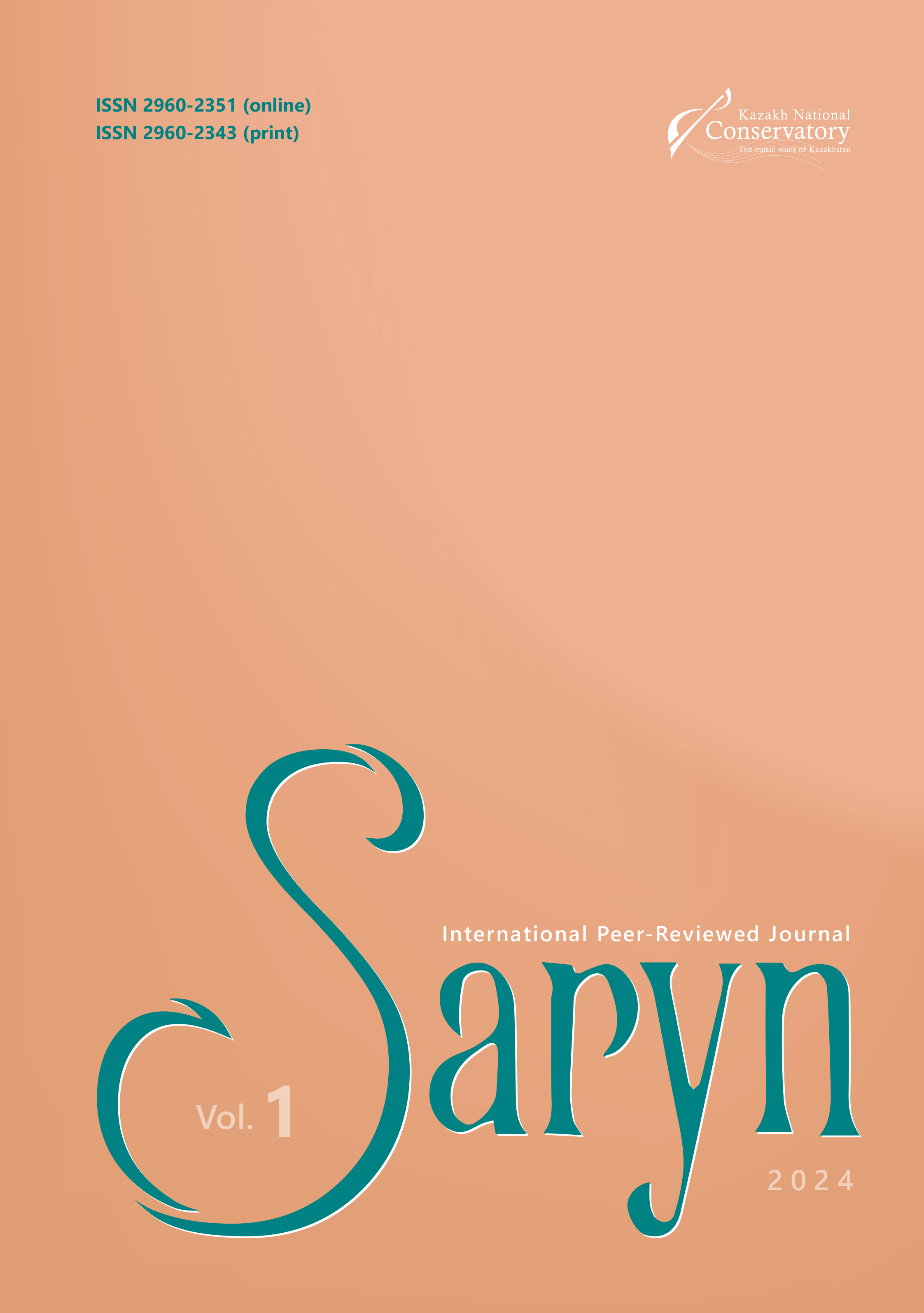Article information
Article publication date
2024-03-22
Article Page
67-82
Chapter
Reviews, reviews, interviews
License
Abstract
The theatrical process in Central Asia is characterized by a common history of formation and development, basic principles and at the same time the originality and artistic heterogeneity of national theaters. A theater festival that is currently acquiring important significance as a space for dialogue between cultures serves as an indicator of its transformation in the region. Using the example of the winning performances of the VI International Theater Festival “Aitmatov and Theater” (2023), the mythopoetic picture of the world of Chinghiz Aitmatov is studied in the context of modern stage interpretations.
The festival featured productions of prose rather than drama. This determined the features of the aesthetic structure of performances created within logocentric oriental cultures. The article analyzes the performances of Ulanmyrzha Karypbayev, one of the leading young directors in Central Asia. His productions such as “Borandy becket” (Station under Storm) and “Ak keme” (White Steamship) were among the best. They reveal the most characteristic features of U. Karypbayev as a director: a rich metaphorical system, theatrical polyphony, ritualization, grotesque, complex mise-en-scène. A large-scale play “Zhan pida” (Scaffold) directed by Nurkanat Zhakypbai current open the topics of historical memory, national identity and essential issues of existence. His stage interpretation is characterized by multi-layered visuals, exquisite plastic solutions, picturesque crowd scenes, a complex musical score, and a monologue principle in the acting performance. The directors Bair Badmayev and Gafur Mardanov created the story of Mother’s life path in the context of the national picture of the world in the stage versions of Mother Earth.
The festival demonstrated a modern theatrical interpretation of Aitmatov’s works in Central Asia, characterized by leaving a usual path of words on stage and turning to more deeper interpretations. It is obvious that compositionally complex stage works are created with all components existing on an equal basis: words, stage action, scenography, rich plastic score, authentic musical sequence with performers on stage. Directors raise current issues, artistically comprehend reality and embody it in ideas, images, stage solutions that reflect the richness and diversity of the theatrical art in Central Asia.
Keywords
theater festival
cultural dialogue
Chinghiz Aitmatov
mythopoetic picture
metaphor
interpretation
archetypes
References
Lehmann, Hans-Thies. Postdramaticheskij teatr [Postdramatic Theater]. Introduction by Anatoliy Vasilyev, transl. from German, aut. article and comments by Natalya Issayeva. Moscow, ABCdesign, 2013. (In Russian)
Maltseva, Olga. Teatr Ejmuntasa Nyakroshyusa (Poetika) [Theater of Eymuntas Nyakroshyus (Poetics)]. Moscow, Novoe literaturnoe obozrenie [New Literary Review], 2013. (In Russian)
Rudnev, Pavel. Drama pamyati. Ocherki istorii rossijskoj dramaturgii. 1950–2010-e [Drama of Memory. Essays on the History of Russian Drama. 1950–2010]. Moscow, Novoe literaturnoe obozrenie [New Literary Review], 2018. (In Russian)
Vogler, Christopher. Puteshestvie pisatelya. Mifologicheskie struktury v literature i kino [A Writer's Journey. Mythological Structures in Literature and Cinema]. Transl. from English by Mariya Nikolenko, edited by Roza Piskotina. Moscow, Alpina non-fiction, 2015. (In Russian)
Yakubova, Natalya. Teatr epohi peremen v Polshe, Vengrii i Rossii. 1990–2010 gody [Theater of the Age of Change in Poland, Hungary and Russia. 1990–2010]. Moscow, Novoe literaturnoe obozrenie [New Literary Review], 2014. (In Russian)




